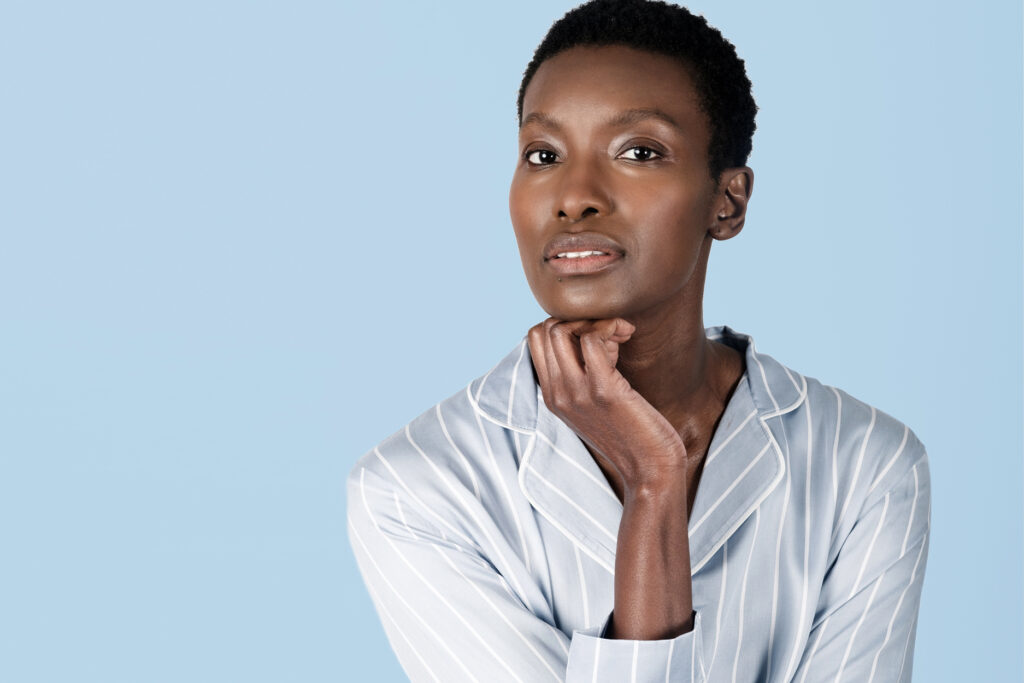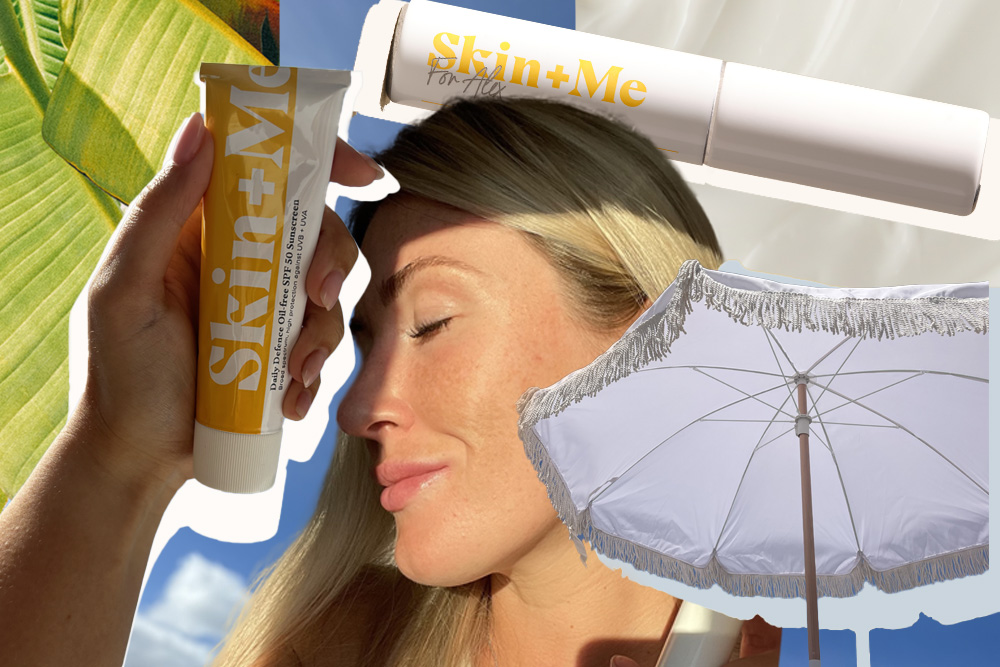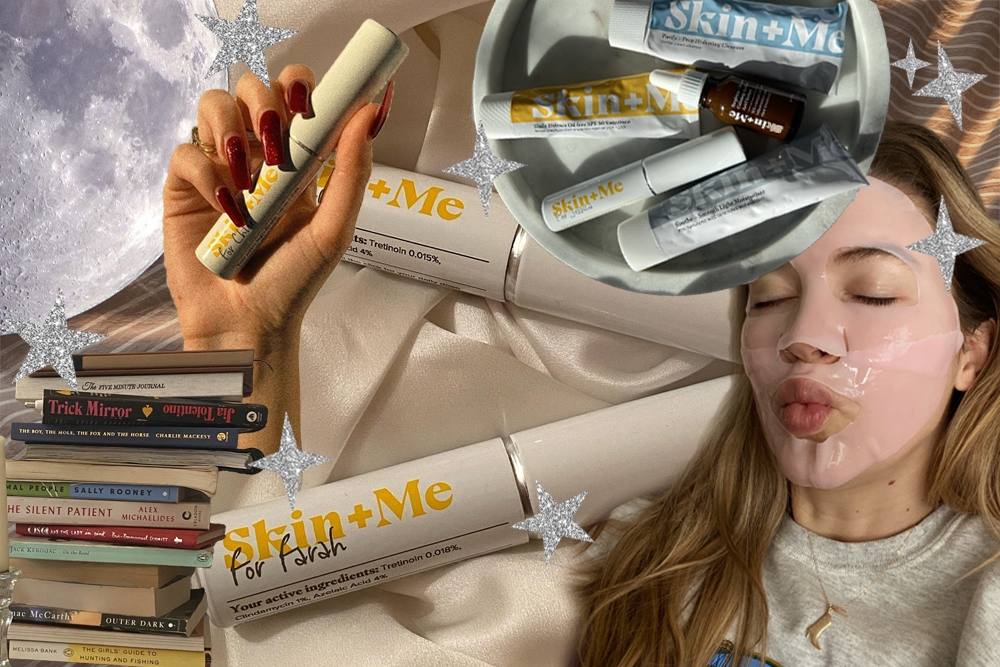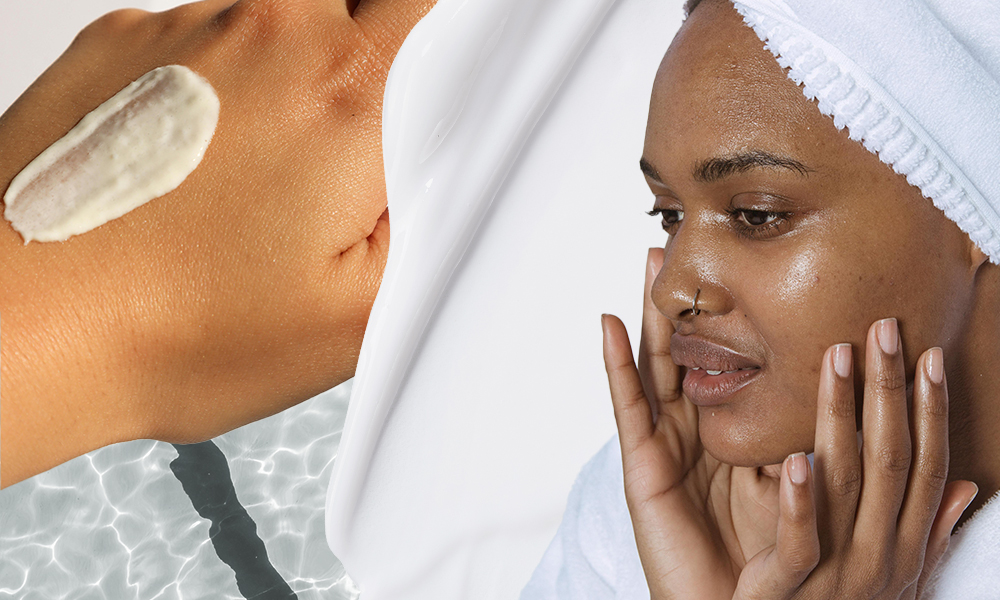Melasma 101

Link to share article here:
Myth Buster: Black Skincare From A Dermatology Prescriber
How can skin colour affect our skincare journeys – and the way we treat our skin?
We sat down with our in-house Pharmacist, Whitney Yeboah, for some sound dermatological advice for people with black skin and darker skin tones.
Combining both her own personal experience and knowledge of the formulations she prescribes – Whitney’s full of wisdom about how to find the best routines and products for specific black skin concerns.
“One of the biggest myths is that black people and those with darker skin tones need a completely different skincare routine from people with lighter skin. Experts broadly agree that it’s most important to treat skin by specific concerns and skin type i.e sensitive, oily, combination etc. and that many treatments can universally work across all skin tones.
“Tailoring your skincare routine and your product to your skin type yields broader benefits than just looking to align your products specifically to black skin. In my role, we use professional experience and case-by-case consultations to get to the heart of skin type, and common issues associated with black skin may feed into my recommendations.
“This is because black skin can predispose you to certain skin concerns – but treatments that target these concerns can also be used in other skin tones for either the same concern or something slightly different. We’ll always advise you personally on the best treatment for you – we prescribe by taking all of these factors into account.”
“A common concern in darker skin tones is post-inflammatory hyperpigmentation (PIH). Epidemiological studies have shown that this skin concern is one of the most common reasons for seeking care from a dermatologist in darker racial/ethnic groups. PIH is just one type of hyperpigmentation and can be identified as an uneven skin tone or a dark residual mark left behind following injury to the skin or after an inflamed acne breakout.
In much lighter pale skin tones these residual marks often appear red and are classified as post-inflammatory erythema. There are many other aetiologies for PIH including hypersensitivity reactions, atopic dermatitis and more. In my experience, it’s the PIH that tends to concern people with darker skin more than the actual spots themselves.
“PIH is more common in black skin because we have more melanin – a natural skin pigment responsible for determining skin colour.
“The first focus of treatment for PIH caused by spots is to treat the underlying aetiology which is the acne itself. In this particular case, I would often recommend a topical antibiotic (or oral if applicable) for a defined period of time alongside a topical retinoid or azelaic acid. Once you have an effective treatment for the acne then we can potentially introduce other depigmenting treatments that specifically target the dark hyperpigmented marks themselves.
“The useful thing about our Daily Doser is that it combines active ingredients that can treat multiple concerns – such as spots and hyperpigmentation – at the same time. Ingredients like retinoids and azelaic acid have proven effectiveness in treating both skin concerns”
“SPF is still non-negotiable even though higher levels of melanin can provide a marginally higher level of UV protection when compared to other skin tones. You’ll be surprised to know how much a good sunscreen can help even out the skin tone as sunlight will worsen almost all forms of hyperpigmentation.
“Most people believe that signs of ageing are less prominent in darker skin complexions. Anecdotally, black people can be less likely to use products to combat ageing and for that reason, they may not prioritise using sunscreen.”
“SPF is for everyone and this is for the general health of skin – regardless of skin colour. I’m a big fan of wearing the La Roche-Posay Ultra-Light Invisible Fluid Sun Cream, SPF 50, on a daily basis.
“I appreciate it’s hard to find an SPF for black skin that doesn’t leave a white cast (often mineral-based SPFs that contain zinc oxide can have this effect) but modern SPF products are a lot better than they used to be. A well-known zinc oxide sunscreen that gets it right is the Umbra Sheer Physical Daily Defense by Drunk Elephant – it can have a slight white cast when placed on the skin but if you work it in it should be just fine. If you have a much darker skin complexion, opt for a non-mineral product as these are certainly less likely to leave a visible white cast.
“Remember that unprotected skin is at risk of damage, loss of elasticity (and potentially associated skin cancers) – whatever your skin tone. SPF is a crucial part of reducing these risks.”
“Cleansing and moisturising routines for black skin should depend on skin type. If your skin is dry, go for a gentle cleanser and richer, more hydrating moisturisers. Likewise, switch to oil-free formulations if you suffer from oily, acne-prone skin.
“This won’t differ hugely depending on skin colour – darker skin tones can still experience eczema and oily skin – everyone’s skin is different so always focus on routines targeting your skin type.”
“The skincare routine that works for me is very simple. I use CeraVe hydrating cleanser and moisturiser morning and night. Oh and I always apply La Roche-Posay sun cream every day.”
“I double cleanse only if I wear makeup and if I do, I use micellar water as my first cleanse. It can be useful to double cleanse if you have acne-prone skin or want to remove all traces of your makeup or SPF. Ultimately you want to clean your skin without dragging – micellar water that binds oil or a simple cleansing oil is a good choice for a gentle but effective sweep.”
“The champions of black skin concerns I listen to are experts in their field. I follow other trained derms, specialist doctors, aestheticians and pharmacists who combine science with genuine professional experience to cut through the noise when it comes to finding out what works – and get real results.”
“When it comes to influencers – for me, it can be easier to feel an affinity with – and take product recommendations from people that have a similar skin tone. Just don’t forget SPF – and understand that their actual skin type is important before taking on recommendations.
“Dr Alexis is a ‘Skin of Colour Expert’, @dralexisstephens on Instagram. She posts some great tips which are skin-specific to darker skin complexions – but also great skincare wisdom for everyone.”
“I love US-based Nayamka Roberts-Smith, @labeautyologist on Instagram. Her wisdom includes washing your face for 60 seconds to boost circulation and cleanse more thoroughly – she also puts useful videos on Youtube for perfecting your skincare routine.
“Lastly, Dr Adeline Kikam a ‘skinclusive advocate’, @brownskinderm on Instagram. She gives great insight into common skin conditions affecting darker skin tones and how the presentation varies when compared to lighter skin complexions.”
New to Skin + Me? Get your first month of personalised skincare for £4.99 with promo code DOSE – complete our quick consultation here.
Looking for a routine refresh? Add the Dream Routine to your Skin + Me subscription.
In need of a restock? Head to The Skincare Shop for one-off purchases of your Routine Essentials.
New to Skin + Me? Get your first month of personalised skincare for £4.99 with promo code DOSE – complete our quick consultation here.
Looking for a routine refresh? Add the Dream Routine to your Skin + Me subscription.
In need of a restock? Head to The Skincare Shop for one-off purchases of your Routine Essentials.



